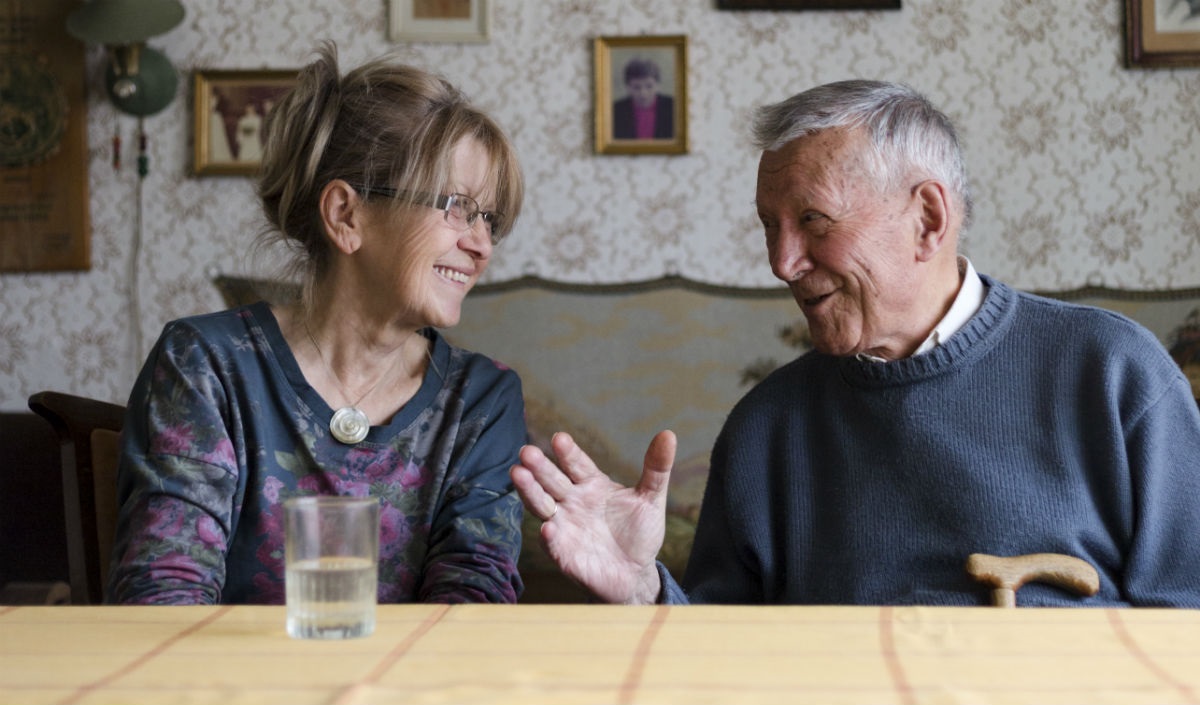Trending Topics
Home Safety for Seniors: Caregiver Advice for Quality of Life
Beverly Nelson |

Beverly Nelson is the creator of Stand Up For Caregivers, which aims to help protect and advocate for the health and well-being of adult caregivers.
As people age, their ability to identify, anticipate, remember and react to dangers in the home diminishes. It’s a natural part of the aging process. That means caregivers must play a crucial role in protecting their loved ones by anticipating problems and taking steps to prevent falls, cuts, burns and other in-home accidents.
It can be difficult to account for every potential danger spot, particularly if your relative has Alzheimer’s disease or suffers from some other form of dementia. Caregivers try to anticipate problems by putting themselves in their family member’s place but it can be problematic, especially if the caregiver is unfamiliar with the nature and severity of their care subject’s condition.
Common dangers
Falls are the leading cause of non-fatal and fatal injuries among seniors. Some risk factors are self-evident; others are more subtle and easy to overlook. That’s why it’s so important to be meticulous when checking your home for problem areas. Start by moving objects that are obvious threats, such as electrical cords, furniture with sharp corners (like stools and tables) and removing or nailing down all throw rugs.
Make sure there are secure railings in all stairways (place safety gates to keep seniors with Alzheimer’s from suffering a potentially lethal fall). If you have hardwood stairways, place non-slip pads on each stair and keep each stairway well-lit. Lighting is important throughout the house, including your care subject’s bedroom, which should always have a working night light.
Safe bathrooms
The bathroom is one of the most dangerous rooms in your house for seniors, who slip and fall in the bathtub or shower at an alarming rate. Medications can be confused and taken improperly. Scaldings are a constant threat to older adults who often confuse hot water faucets for cold. Razors, scissors and other sharp items left lying around can cause cuts. Keeping dangerous objects put away is an obvious way to prevent many of the injuries that occur in the bathroom. Non-skid mats in the bathtub or shower prevent slipping, as can grab rails. Burns can be prevented by setting your water heater no higher than 120 degrees. If your family member tends to get confused easily, be sure to install locks on both sides of the bathroom door.
Kitchen care
Your kitchen is another dangerous room for a confused or enfeebled senior citizen, who can easily be injured by kitchen knives, the stove, and the presence of cleaning fluids. Keep all sharp kitchen knives out of reach and in a rack. A senior who turns on the oven or burners may forget to turn them off, so keep the knobs covered and remove flammable liquids from the kitchen area altogether. Spoiled foods can also be dangerous, so remember to get rid of food items that have gone bad, and clear out loose items kept in an “odds-and-ends” drawer - a senior with dementia may try to eat an object that could prove lethal.
Prescription precautions
It goes without saying that medications should be kept locked away if you’re caring for an Alzheimer’s patient. Make sure that all prescriptions are clearly labeled and kept in a well-lit area to prevent a deadly mistake from occurring. And be careful to throw away any outdated medications. A care subject’s condition may require you to take control of tracking, refilling and dispensing all prescriptions.
Home accidents can happen to anyone, no matter how many precautions you take. For a senior suffering from impaired cognitive functioning or the effects of Alzheimer’s, the home can be an extremely dangerous place. Keeping an elderly relative safe is a trying, round-the-clock job for a caregiver. Regular home safety inventories can keep your loved one from becoming part of a depressing annual statistic.
